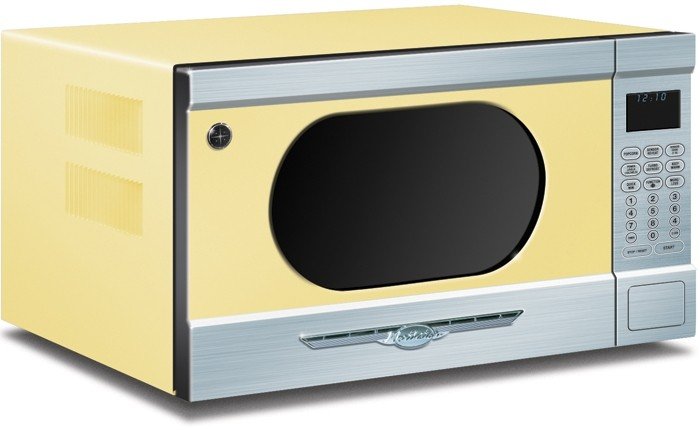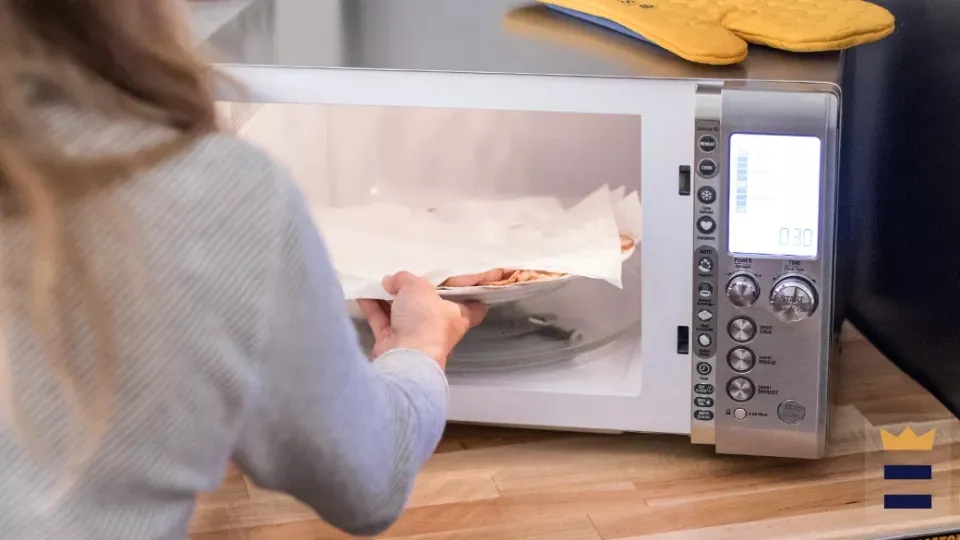Appliance replacement or repair should not be done frequently. There are other ways to spend that much money. However, what about a microwave? They’re used so frequently. How long do microwaves last?
Depending on the quality and frequency of use, the average microwave lasts for around 10 years. The average microwave’s lifespan is 1500 to 2000 hours, but some cheap models only last 500.
It’s crucial to look for a high-quality microwave from a reputable appliance manufacturer like Whirlpool, Kenmore, Frigidaire, LG, and others. Choosing a reputable brand is a good idea because few manufacturers specify how long their microwaves will last in their advertisements. Take a look at the quantity of favorable reviews as well.
How Long Do Microwaves Last?
In the kitchen, a microwave is invaluable. It warms the rice while you continue cooking on the hob. When your visitors arrive a little late for dinner, it reheats the food. Even your children will be entertained by their preferred buttery popcorn and hot chocolate with marshmallows on top. It is truly a blessing.
But sadly, these rectangular sous-chefs don’t last forever. In fact, the average lifespan of a microwave is just 8 years. A microwave typically doesn’t live past its fifth birthday in many busy households, though.
Your microwave’s lifespan may be a concern after reading this. Confirm your family’s microwave usage habits to learn more. Then, you’ll be able to gauge how long your right-hand man in the electrical department will remain by your side in the kitchen.
Heavy Use
How frequently do you and your household use the microwave? Do you:
- You have a big family (more than 4 people).
- Use the microwave to thaw food and reheat snacks continuously throughout the day?
- maintain your microwave infrequently?
Is your microwave regularly used throughout the day? Only then will it last for a mere 4-5 years. This is particularly true if the microwave is not properly maintained.
What, however, goes into proper microwave maintenance? Check out the details below to learn more.
Good maintenance for your microwave means:
- Removing any spills right away.
- Grease filter cleaning on a regular basis.
- While you are preparing food in the kitchen, wipe any moisture from the microwave.
- contacting an electrician if you experience a microwave issue
Even if your microwave is constantly in use, regular maintenance will enable you to increase its lifespan by at least a year.

Normal Use
The lifespan of your microwave will depend on how frequently you use it. Do you:
- Have a typical-sized family of four?
- Use the microwave to thaw food and reheat snacks a few times per day?
- Maintain the microwave’s upkeep schedule?
If your microwave usage falls into the “normal” category then you can expect yours to last about 7 years. If you maintain a good microwave maintenance schedule, it might even last up to 8 years.
Infrequent Use
Do you hardly ever use your microwave? Do you:
- Do you live by yourself or with someone else?
- Just once or twice per day, use the microwave?
- Maintain the microwave’s maintenance schedule?
Does your microwave usage fall into the “infrequent” use category? If so, you can anticipate that yours will last for up to 10 years. If you adhere to an effective maintenance schedule, this is particularly true.
Do Microwaves Wear Out?
Yes, a component known as a magnetron powers microwaves. You will require a new microwave after this one burns out after roughly 2000 hours. On rare occasions, the fuse might blow, which is frequently brought on by a faulty component like the magnetron or the door interlocking mechanism. You never know when your microwave will simply stop working as it ages. Over time, the control panel, handle, door seal, and door itself may sustain damage.
Are Old Microwaves Safe?
It’s just as safe to use your microwave as long as it operates properly. Turn off and unplug your microwave as soon as you notice any smoke inside. It’s also a sign of a bad microwave when the food heats up unevenly, not at all, or quickly.
My microwave needed to be replaced recently. I had it for more than ten years. A tiny plastic component was fastened to the microwave’s base underneath the plate. A lot of smoke and a loud rattling sound were produced inside the microwave when this caught fire. Fortunately, I noticed it before a fire started.
The microwave would continue to operate after the plastic piece was removed. However, it only took a few minutes to burn the popcorn! At this point, I realized the microwave needed to be replaced.
Should I Replace My 20-year-old Microwave?
If your microwave still functions, use it frequently and keep it tidy. Three things could go wrong, but they are extremely unlikely, especially for a microwave that is 20 years old.
- The door or seal on the door could break and microwaves would leakinto your kitchen. Unless you’re right up against the microwave, this is not dangerous.
- It is also possible for the interlock system, which turns off the microwave when the door is opened, to malfunction. If that component is damaged, you ought to stop using your microwave immediately.
- The microwave could experience a short circuit and the fuse could blow.
The magnetron is likely dead if your microwave stops operating or doesn’t heat properly. Your microwave needs to be replaced in this situation.

Signs It’s Time to Replace Your Microwave
Here are the common signs that you need to repleace your microwave:
Smoke, Sparks, and Burning Smells
These are indicators of a critical and pressing issue. The microwave must be immediately turned off and unplugged. If you see smoke, sparks, or the smell of burning materials, there is no turning back. It’s time for a replacement because your microwave is malfunctioning.
Food Isn’t Cooking Properly
Microwaves’ ability to significantly reduce cooking time is one of their main draws. If your microwave is heating food much slower than normal, or not at all, something is off.
Test your microwave if you think its power may be waning. On high power, boil one cup of water for two minutes. If it’s not scorching hot, it might be time to buy a new microwave.
It Makes Horrible Sounds as It Cooks
Your microwave should be only making a gentle hum while it cooks, and it should be fairly quiet. Instead, if it gets loud and starts buzzing, rattling, or grinding, something is wrong. Start by inspecting the fan and turntable. It’s simple to correct a food leftover or alignment issue. When a bigger issue arises, a new microwave might be the best option to solve it if those areas look okay.
The Door Doesn’t Seal Properly
When closed, the microwave door should be completely sealed. This crucial safety feature, intended to keep radiation contained, is This is sufficient justification for a new microwave if it appears cracked, seriously worn, or broken.
The Keypad Doesn’t Function
An essential component of microwave cooking is the keypad. If it doesn’t react when you press the start button, power setting, or cook time, things might be getting worse. It’s possible that the keypad only needs to be thoroughly cleaned. But if that doesn’t work, it might be time for a replacement.
It’s over 10 Years Old
The majority of microwaves are made to last up to 10 years. However, given how quickly technology advances and how much more energy-efficient most appliances become, it might still be time to think about an upgrade even if yours is older than ten years and seems to be in good condition.
FAQs
Microwave Repair Cost
Microwaves cost about $150 to repair on average, according to HomeAdvisor. You might fork over up to $400, depending on the repair.
For between $250 and $500, you can buy a good microwave. So in most cases, it’s not worth it to repair your microwave. The magnetron, which can cost anywhere between $100 and $200 by itself, is the most expensive component to replace. You’re better off investing in a new microwave if this one breaks.
Is It Safe to Use a Damaged Microwave?
No, don’t use a broken microwave. The greatest danger is starting a house fire. Although not as dangerous, leaks of microwave radiation are possible. The amount of radiation is too small to cause any harm.
Can You Get Sick from a Broken Microwave?
No, using a microwave won’t make you sick. Radiation levels are too low. In greater quantities, they can cause harm – but not from ovens. They do not cause cancer, according to the Cancer Council.
Summary: How Long Do Microwaves Last?
Microwaves only last 10 years on average. However, everyone wants their microwaves to last as long as it is physically possible. If your microwave is used constantly throughout the day, this might be a little challenging. You’ve likely learned some techniques in this article that you can use to increase the microwave’s lifespan.
Read about:



